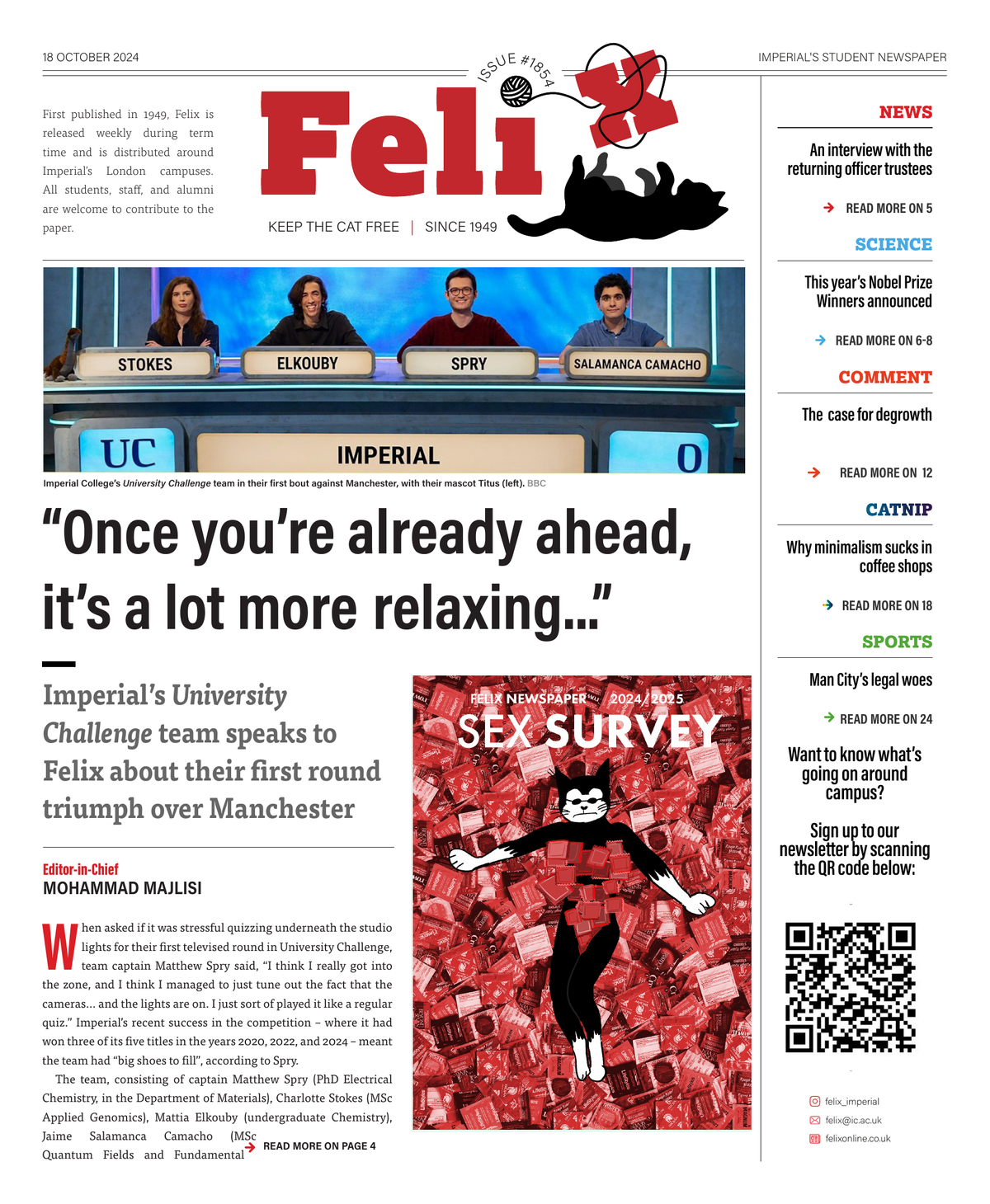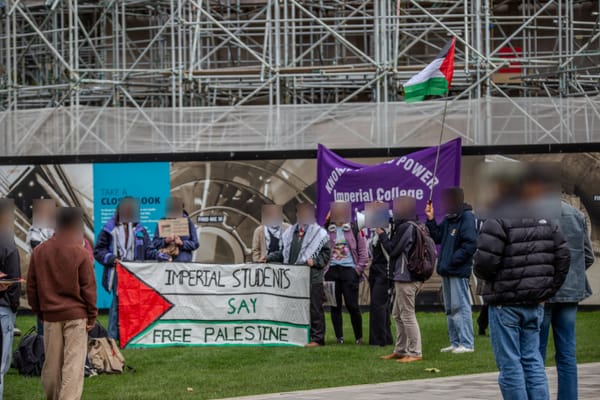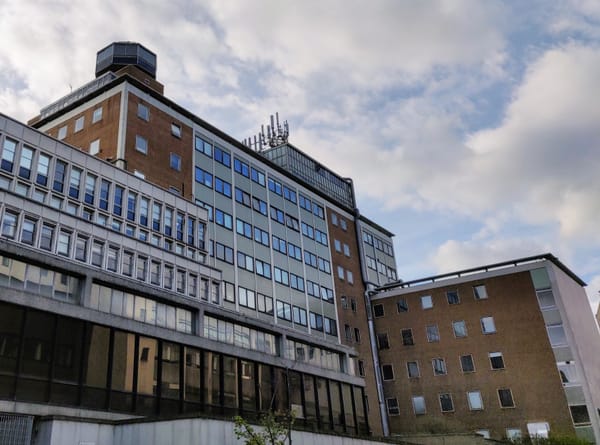Union launches next phase of democracy review
Imperial College Union is holding focus groups for its democracy review in order to improve its representation of the student body. The review will take a look at democratic functions as well as student representative structures, to ensure that the Union accurately represents the views of students, as well as improving engagement.
Students are invited to sign up for focus groups taking place the week commencing 21st October.
Announced in July 2024, the review seeks to take a “a holistic look at whether our current ways for you to contribute to the Union are effective, impactful and accessible to all Imperial students. It’s all about trying to improve your Union so we ensure we’re representing students; it should change some of the ways we do things, enabling a more inclusive and representative students' union in the future,” from a blog post written by Union President Camille Boutrolle.
2024’s leadership election saw a voter turnout of 21.77% for the general election, and a 31.70% turnout for Clubs, Societies and Projects (CSP) elections. Whilst this is a greater turnout on average for the university sector, turnout has decreased in recent years.










